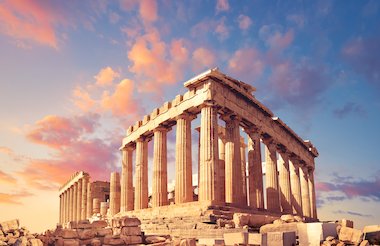Ancient Greece: topic summary
Add to My Folder
Our handy topic summaries can be used to support homework, as well as providing helpful collections of related resources for teachers to use in school or for parents to use for home learning.

Children should be able to locate Greece at the far end of the Mediterranean Sea and its present-day capital Athens. It has a mainland connected to Europe and many islands, although not all of them are inhabited. Greek civilisation started in about 3000 BCE but its best known period is from about 800 BCE onward. At that time Greece was not a single country but was made up of independent city-states like Thebes, Argos, Corinth, Athens and Sparta. Sparta became well known for training ferocious soldiers and Athens had a democratic system of government where people could vote on military decisions and changes in the law. Sometimes these city-states went to war with each other. The most famous Greek soldier of the time was Alexander the Great (356-323 BCE) who came from Macedonia.
The Greeks worshipped many gods and goddesses. The leader of the gods was Zeus who lived on Mount Olympus. People worshipped in large temples and also had altars in their own homes. The Ancient Greeks told lots of traditional stories about past heroes and their adventures. These include Prometheus, who taught humans to make fire, Atlas, who held up the sky on his shoulders and the hero Heracles (Hercules), who completed twelve seemingly impossible tasks.
Published 28 July 2020
Reviews
You need to be signed in to place a review.